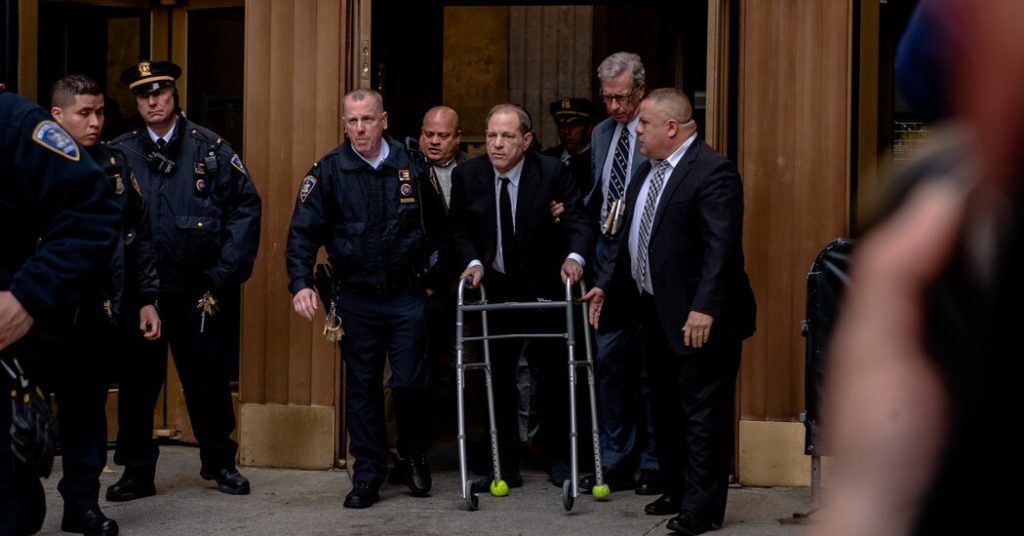The New York Court of Appeals overturned the felony sex crimes conviction of Hollywood producer Harvey Weinstein in a 4-to-3 decision. The judge presiding over the case was found to have deprived Weinstein of a fair trial by allowing witnesses to testify about assaults that were not the basis for the charges against him. Manhattan district attorney Alvin L. Bragg announced his intention to retry the case. Weinstein, who is currently in a prison facility in Rome, NY, is expected to be transferred closer to New York City. The ruling also raised questions about Weinstein’s conviction in California on rape and sexual assault charges, which also relied on witness testimony unrelated to the charges.
The decision was met with shock and anger by some of Weinstein’s accusers, including Ashley Judd, the first actress to come forward with allegations against him. Weinstein’s lawyer, Arthur Aidala, revealed that Weinstein was grateful for the decision and is facing declining health. During his career, Weinstein was a dominant figure in Hollywood, producing critically acclaimed films through his Miramax label. The downfall of Weinstein, following accusations from numerous women, sparked a reckoning in Hollywood and the world regarding powerful men using their status for sexual misconduct.
Weinstein was convicted in New York of raping Jessica Mann and assaulting Miriam Haley in 2020, leading to a 23-year prison sentence. The appeals court found fault with the admission of testimony from witnesses who described abuse outside the scope of the criminal case, stating that it unfairly influenced the jury. The court also criticized the trial judge for allowing prosecutors to ask Weinstein about uncharged allegations if he took the stand, which he did not. This ruling has sparked debate about the ground rules for criminal convictions in sexual misconduct cases and the use of witness testimony in establishing patterns of behavior.
The majority ruling in Weinstein’s case included three female judges, marking a shift in the decision-making process. Some justices voiced dissent, stating that the majority’s opinion displayed fundamental misunderstandings of sexual violence by powerful men. The case has reignited discussions about the delicate balance between allowing multiple accusers in court cases and adhering to strict witness rules that could impact the outcome of trials. Legal experts believe that these issues will continue to be relevant in prosecutions during the #MeToo era. The result of Weinstein’s latest appeal emphasizes the complexities of prosecuting sex crimes and the challenges faced by survivors in seeking justice.


